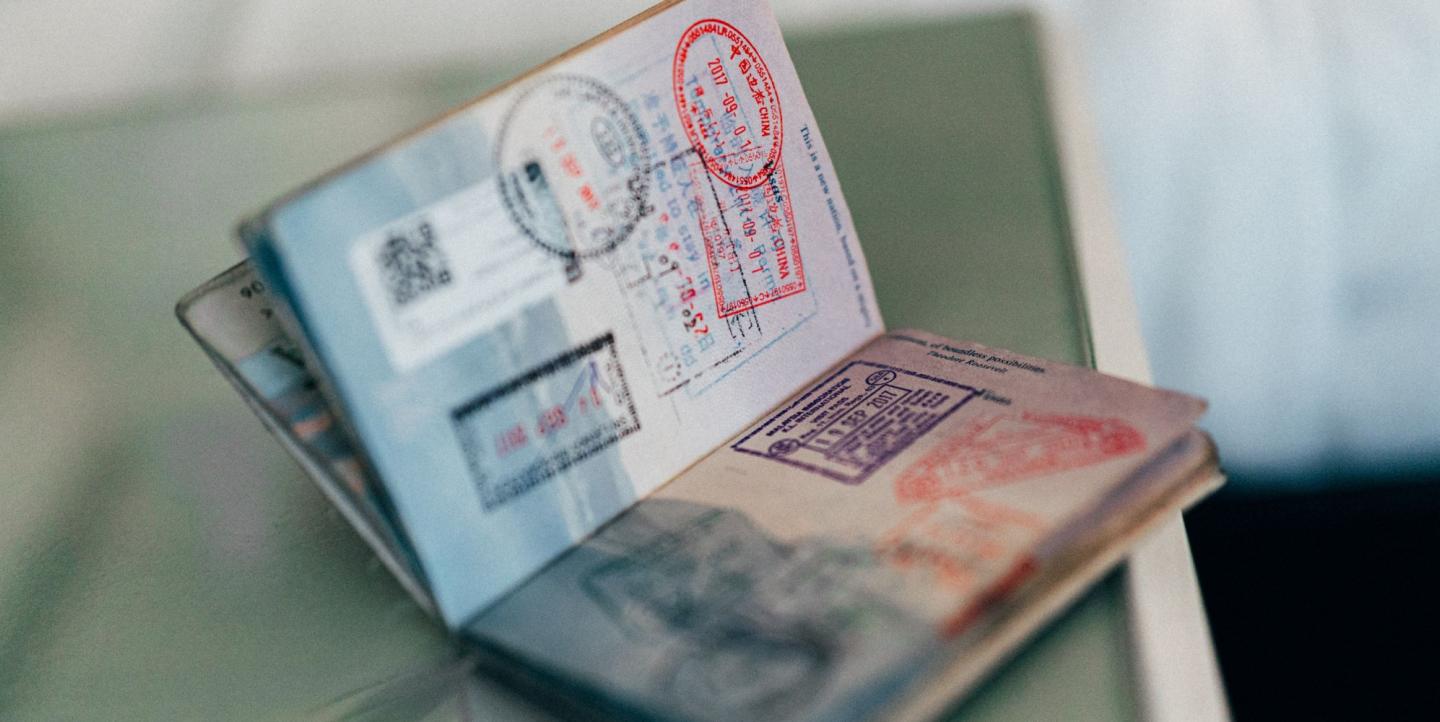Journalists often may need to travel for their work, for instance for a reporting project or conference. This is harder for certain journalists, depending on where they are from.
A journalist’s country of origin may dictate the likelihood that they have their visa applications denied
– or need visas in the first place – among other travel impediments that hinder on-the-ground reporting, limit attendance at events and more.
During a recent ICFJ Global Crisis Reporting Forum webinar, journalists from Nigeria addressed the visa and travel challenges that reporters, especially those from the Global South, face.
Blessing Oladunjoye, media consultant and practicing journalist at BONews Service; Kehinde Adegboyega, co-founder and executive director at the Human Rights Journalists Network; Oyiza Adaba, founder of Africa-Related and Ita’i Our Cloth; Lekan Otufodunrin, a journalist and media career development specialist; and broadcast journalist Kingsley Onwuka shared their experiences and provided tips on how to address these visa and travel challenges. ICFJ Community Manager Paul Adepoju moderated the panel.
Here’s what they discussed:
Challenges
Countries in the Global South account for the highest number of applications for Schengen visas, which enable visitors from many non-EU countries to travel to the EU. Global South countries also experience the highest rates of rejection with Schengen visa applications. Gaps between travelers' expectations and visa application requirements can result in travel delays and cancellations.
In June, Oladunjoye planned to attend RightsCon in Costa Rica, using her Schengen visa to pass through Europe on the way. “The organizers already made plans and spoke with the migration office in Costa Rica to help us get visas,” she said.
After arrangements were set, however, she learned that she in fact needed another type of visa for the trip, possible only with proof of accommodation. “Despite everything being ready and my travel documents filled out, I didn't have travel accommodation in a Schengen country and nothing could be done at the time,” she said.
Countries should support their journalists instead of applying pressure on them, said Adegboyega. He recalled how, when heading to the RightsCon conference, Nigerian police requested criminal record checks from his colleagues and him. “If you are giving special treatment to diplomats, why can't you give that kind of treatment to a journalist?” he said.
Having visited the U.S. several times before, Otufodunrin is familiar with the country’s visa requirements. However, even with proof of work and past success acquiring visas to travel, he has run into issues. Once, Otufodunrin had his visa rejected when traveling from Kenya to South Africa for the Africa Leadership Initiative Media Fellowship.
"We could not get the visa. I pulled all the strings I knew after the presidency, which did not work, and we had to relocate to Rwanda,” he said. “As much as we complain, we need to realize that these are all systemic [issues].”
Tips and strategies
Here are some tips and strategies Adepoju suggested journalists keep in mind when applying for visas:
Report on the issue
Raising awareness about challenges obtaining visas can help improve circumstances, said Adepoju. If not called out, embassies are more likely to overlook visa denials as routine procedure.
“It is an exclusive story that could eventually be one of the contributions to solving that problem,” said Adepoju.
Informing event organizers about the issues can also help. "I reached out to [event organizers] during the process,” said Adepoju of one past experience. “Before I knew it, they had already sent an email.”
Consider alternatives
Before committing to attend a conference or event in person, Adepoju encouraged journalists to consider if their physical attendance is necessary. Keeping virtual participation as an option may prompt event organizers to improve their attendance requirements.
When choosing a destination, too, journalists should consider countries that either don’t require visas or offer them upon arrival. Likewise, destinations that require visas allowing journalists to visit multiple countries, such as a Schengen visa, can save time and effort.
Make sure your information is up to date
When filling out documentation, it’s important to ensure that information is current. This includes emergency contacts. “Let’s say you provided a phone number for someone who does not regularly check emails. This could lead to issues with confirmation,” said Adepoju.
Be mindful of specific visa requirements
Keep in mind the requirements of the specific visa you apply for. Maintain a dialogue with the respective embassy and familiarize yourself with the officials and their responsibilities to help ensure proceedings go smoothly.
“Figure out the organization’s policy and know who is in charge,” Adepoju said.
Include press credentials and portfolios
Press credentials are key. Even when not requested, they can be included with visa applications to help authorities verify your professional background. Submitting a work portfolio can also help demonstrate proof of work.
“[Visa] issues deserve to be called out,” said Adepoju. “The more they are called out locally, the higher the chance of being addressed globally.”
Photo by ConvertKit on Unsplash.


